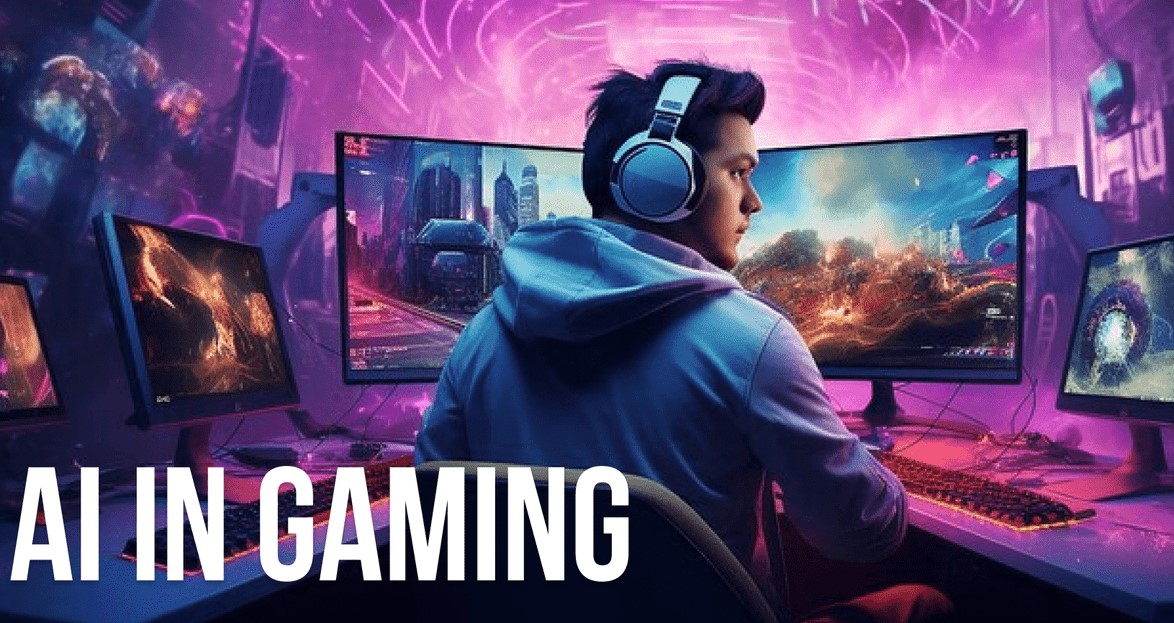The interactive entertainment sector is getting ready for a game-changing year as 2024 approaches. Technology advancements and changing customer expectations are two reasons why the environment is changing quickly. Unprecedented developments are expected in the coming year, improving our gaming and digital content interaction experiences.
Artificial Intelligence: Crafting Smarter Experiences

Artificial Intelligence (AI) is set to revolutionize interactive experiences in 2024. Historically, AI has already impacted various industries, and its role in entertainment is becoming increasingly significant. As we examine the latest trends in the gaming industry, it’s clear that AI will play a crucial part in creating more intelligent and responsive non-playable characters (NPCs). These characters will be able to learn from player behavior, adapting their tactics and responses in real-time. This advancement will make gameplay more challenging and engaging, as players face opponents that evolve with their strategies.
Another critical area where AI is making strides is procedural content generation. This technology allows for the algorithmic creation of game environments and levels, leading to unique experiences every time a player engages with a game. For instance, games like No Man’s Sky showcase how AI can generate vast, diverse digital worlds, offering players endless exploration possibilities.
AI’s influence also extends to game development and testing. Automated testing powered by AI can rapidly identify bugs and optimize game performance, reducing development time and improving overall game quality. This efficiency allows developers to deliver more polished and engaging experiences to players, setting the stage for a new era of high-quality, dynamic content.
Extended Reality: Merging Digital and Physical Spaces
Extended Reality (XR), which includes Virtual Reality (VR), Augmented Reality (AR), and Mixed Reality (MR), is reshaping the interactive entertainment sector. These technologies are breaking down the barriers between digital and physical experiences, offering more immersive and interactive gameplay.
Virtual Reality continues to grow, with advancements in hardware making it more accessible. The global VR market is projected to reach $53.44 billion by 2028, driven by improvements in headset technology and graphics. Devices like the Meta Quest 3 are making high-quality VR more affordable and widespread.
Augmented Reality, which overlays digital information onto the real world, is also advancing. Following the success of Pokémon GO, AR is expected to see significant developments in 2024. New AR glasses and mobile devices will enhance the integration of digital elements into everyday life, allowing for more complex and engaging AR experiences.
Mixed Reality, which combines elements of VR and AR, is in its early stages but holds great promise. MR enables users to interact with digital objects as if they were part of their physical surroundings, creating a new level of immersion. As this technology evolves, it could redefine interactive entertainment by blending physical and digital realities.
Blockchain and NFTs: Transforming Ownership and Economics

Blockchain technology and Non-Fungible Tokens (NFTs) are set to become more prominent in 2024, reshaping how digital assets are managed and valued. Blockchain’s decentralized approach offers a new method for players to own and trade in-game items and currencies. This shift could introduce new economic models within games, allowing players to engage in secure, transparent transactions.
NFTs, unique digital assets verified on the blockchain, are expected to become a central feature in many games. These tokens can represent rare items, characters, or even entire game worlds, providing players with true ownership and potential monetization opportunities. However, as blockchain and NFTs become more integrated, challenges such as security, sustainability, and environmental impact will need to be addressed.
Cloud Gaming: Enhancing Accessibility and Flexibility
In 2024, cloud gaming is expected to grow significantly. With the use of this technology, gamers can stream their games from robust servers to a variety of devices, including low-end PCs and cellphones, providing high-quality gaming experiences across the board. The growth of 5G networks and high-speed internet is expected to propel the worldwide cloud gaming industry, which is expected to reach $6.5 billion by 2024 from $1.5 billion in 2021.
Big participants in the market, such as Microsoft and NVIDIA, are making significant investments in cloud gaming and providing vast game libraries that are accessible from any location. This change makes high-end gaming experiences more accessible to everybody and promotes an inclusive community by doing away with the need for pricey gear.
Social Evolution: From Multiplayer to Metaverse

The social dimensions of interactive entertainment are evolving with the rise of the metaverse. The metaverse concept, a shared virtual space where users can interact, play, and create, is becoming more prominent. Companies such as Meta and Epic Games are investing in this new digital frontier, aiming to blend gaming, social media, and digital entertainment into a cohesive experience.
Games like Fortnite and Roblox are already setting the stage for the metaverse, offering players opportunities to socialize, attend virtual events, and create content. As the metaverse expands, it will blur the lines between various forms of digital interaction, creating a new, interconnected experience for users.
Sustainability in Game Development: A Growing Concern
As the interactive entertainment industry grows, so does its environmental impact. In 2024, sustainability will become a key focus. The energy consumption of gaming hardware and data centers is a significant concern, with efforts being made to improve energy efficiency and reduce carbon footprints.
Companies are also exploring the use of sustainable materials in manufacturing and promoting recycling and refurbishment of old devices. For example, Microsoft aims to make its Xbox consoles carbon neutral by 2030, and other companies are following suit with their own sustainability initiatives.
The Future of Interactive Entertainment
In 2024, the field of interactive entertainment is poised for significant change, propelled by advancements in artificial intelligence, virtual reality, blockchain technology, cloud gaming, and sustainability. These developments are changing how we interact with digital information and improving how we play.
There will be fascinating advancements in the upcoming year for both makers and enthusiasts. Future interactive entertainment will usher in a new era of digital engagement by providing immersive, interactive, and socially linked experiences beyond anything seen in the past.
